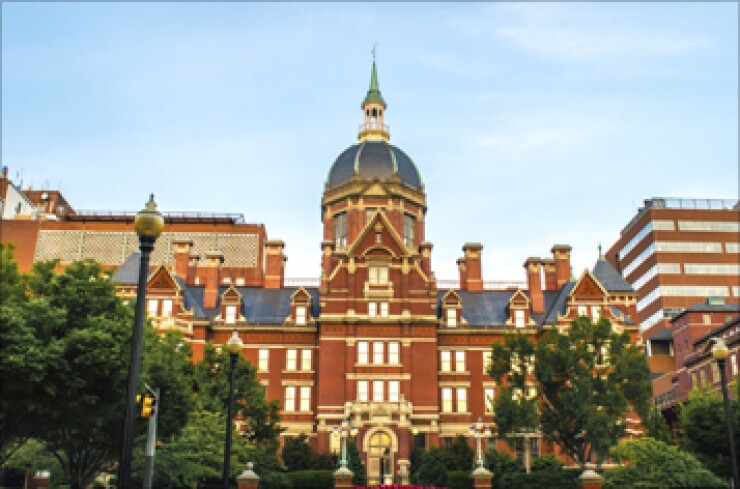
Boston, Philadelphia and Baltimore — despite their disparate credit profiles — typify how the "eds and meds" presence of universities and hospitals can help older cities transform economically, according to Moody's Investors Service.
"As the manufacturing and trade sectors shrank along the eastern seaboard in the last 50 years, hospitals and universities gradually expanded and became the new economic anchors of some older cities, effectively propping up local economies that otherwise declined far more sharply," Moody's said in a commentary.
While exempt from property taxes, the financial benefits are both direct and indirect, according to Moody's. Fees from building permits and construction, income taxes on wages, and payments in lieu of taxes, or PILOT payments, provide direct compensation.
Indirect benefits, said Moody's, include industry related economic activity such as conferences booked at city convention centers, which generated a $231 million economic impact for Boston and Massachusetts.
"One of the bigger takeaways from the report is that the property-tax exemption never tells the whole story of the value they provide to the host cities," William Rhodes, public finance chairman at Philadelphia law firm Ballard Spahr LLP, said of the report. "There are real-estate prices and the stable of high income jobs, and that's worth so much more than the property tax.
"We hear about the drumbeat of PILOTS, but to focus solely on PILOTS misses the bigger picture and the Moody's report drives that point home empirically."
Moody's rates Boston Aaa, Philadelphia A2 and Baltimore Aa2, all with stable outlooks. The rating agency said Monday that the size of the education and healthcare services employment sectors represent a combined 21.5% of the total employment in the three cities, compared with 15.4% across the United States.
Moody's cited the presence of such large institutions as the Partners HealthCare system, many of whose Massachusetts hospitals are affiliates of Harvard Medical School; Johns Hopkins University in Baltimore; and the University of Pennsylvania in Philadelphia and its Penn Medicine health system.
"I look out the west side of my office and over to the Penn campus, and there's always a crane up," said Rhodes.
Moody's, though, warned that challenges to eds and meds are more significant overall than in the past. Its industry outlooks for both remain negative, primarily citing limited revenue growth.
According to Rhodes, the Moody's study concentrated on the superlative credits. "The Harvards, Penns and John Hopkinses are much more resistant to the higher-ed economics of student demand," he said. "In the second- and third-tier cities, you have colleges that might be struggling more, having to compete with students, and hospitals with fairly steep local competition for patients."
Moody's made limited mention of Pittsburgh, which many capital markets and workout professionals reference as a quintessential "eds and meds" turnaround hinging on major hospitals and institutions like Carnegie Mellon University and the University of Pittsburgh.
Moody's rates Pittsburgh A1, citing benefits from a stable employment base those two sectors provide and their assistance in attracting private business.
"However, their impact on the city's financial position is muted because the nonprofits within the city are exempt from payroll taxes and only city resident employees contribute an earned-income tax," according to Moody's.
Moody's two weeks ago revised its outlook on Pittsburgh to positive from stable, citing steps by the city to reduce its long-term liabilities.
In late July, Pittsburgh Mayor Bill Peduto dropped a city lawsuit challenging the tax-exempt status of the University of Pittsburgh Medical Center, Pennsylvania's largest employer. Peduto's predecessor, Luke Ravenstahl, filed the suit last year in the Allegheny County Court of Common Pleas.
UPMC in turn dropped its countersuit in federal court.
The thaw could free Peduto's administration to pursue a more involved agreement that could include an affordable-housing initiative for some employees.





